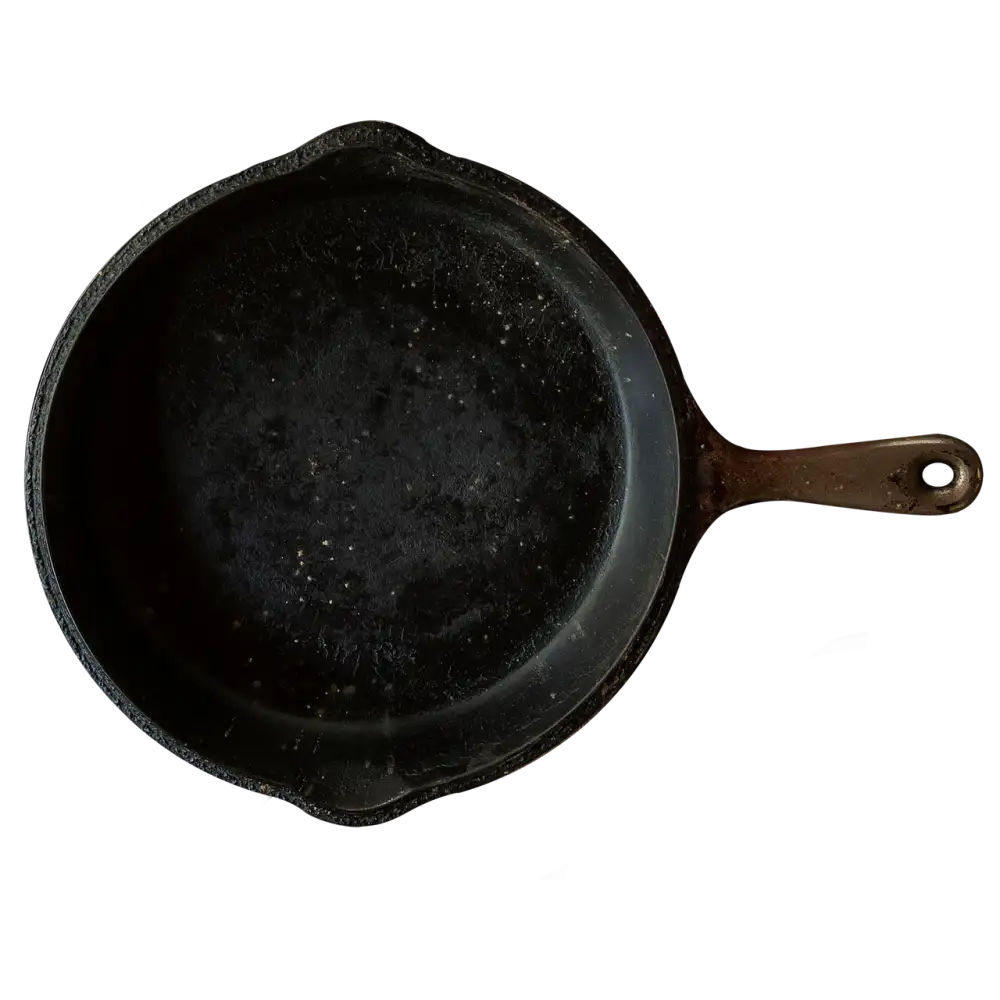Ultimate Guide: How to Properly Wash a Cast Iron Skillet for a Lifetime of Cooking Joy

- Gather materials: hot water, sponge, mild soap.
- Rinse the skillet with hot water.
- Use a sponge to gently scrub off any food residue.
- Avoid using harsh soap or steel wool to preserve the skillet's seasoning.
- Dry the skillet thoroughly with a towel.
- Apply a thin layer of oil to prevent rust.
- Store the skillet in a dry place.
Gather materials: hot water, sponge, mild soap.
Before you embark on the journey of properly washing your cast iron skillet, it's essential to gather the necessary materials. For this task, you will need hot water, a soft sponge, and mild soap. These simple yet effective items will help you maintain the longevity of your beloved skillet without compromising its seasoning. So, let's ensure we have these essentials at hand before we begin the cleaning process.
Rinse the skillet with hot water.
Rinsing your cast iron skillet with hot water is the first step in properly cleaning and maintaining it. After you have finished cooking, allow the skillet to cool slightly before rinsing it under hot running water. The hot water helps to loosen any food particles stuck to the surface of the skillet, making them easier to remove. Be sure to use a gentle touch while rinsing to avoid damaging the seasoning on the skillet. This initial rinse sets the stage for effectively removing any remaining food residue in the following steps.
Use a sponge to gently scrub off any food residue.
After rinsing the cast iron skillet with hot water, it's time to tackle any stubborn food residue. Using a soft sponge, gently scrub off any remaining bits of food. Avoid using abrasive materials like steel wool, as they can damage the skillet's seasoning. Be patient and thorough in this step to ensure that all food particles are removed without compromising the skillet's surface. This gentle scrubbing will help maintain the skillet's non-stick properties and prevent any unwanted flavors from transferring to your next dish.
Avoid using harsh soap or steel wool to preserve the skillet's seasoning.
Cast iron skillets develop a natural seasoning over time, which enhances their non-stick properties and adds flavor to your dishes. To preserve this seasoning, it is crucial to avoid using harsh soap or steel wool when cleaning your skillet. These abrasive materials can strip away the seasoning, leaving your skillet vulnerable to rust and affecting its cooking performance. Instead, opt for a mild soap and a soft sponge to gently clean off any food residue without damaging the seasoning layer. By following this simple step, you can ensure that your cast iron skillet continues to provide you with delicious meals for years to come.
Dry the skillet thoroughly with a towel.
After rinsing off the skillet with hot water and gently scrubbing it with a sponge to remove any food residue, the next crucial step in properly caring for your cast iron skillet is to thoroughly dry it. Leaving any moisture on the skillet can lead to rusting, which can damage the skillet over time. To dry the skillet, use a clean towel to carefully wipe away all traces of water. Ensure that both the inside and outside of the skillet are completely dry before proceeding to the next step of applying a thin layer of oil for protection.
Apply a thin layer of oil to prevent rust.
After drying the skillet thoroughly with a towel, it is crucial to apply a thin layer of oil to prevent rust. The oil creates a protective barrier on the surface of the cast iron, preventing moisture from causing oxidation. You can use any high smoke point oil such as vegetable oil, canola oil, or flaxseed oil. Simply pour a small amount of oil onto the skillet and use a paper towel to spread it evenly across the entire surface, including the handle and exterior. This step helps maintain the skillet's seasoning and prolong its lifespan for years of delicious cooking adventures.
Store the skillet in a dry place.
After properly washing and drying your beloved cast iron skillet, it is crucial to store it in a dry place. Moisture is the enemy of cast iron as it can lead to rusting. To prevent this, ensure the skillet is completely dry before storing it. You can even place a paper towel inside the skillet to absorb any excess moisture that may be lingering. Additionally, consider storing the skillet in a well-ventilated area to avoid any potential humidity buildup. By keeping your cast iron skillet in a dry environment, you are ensuring its longevity and continued cooking performance for years to come.
Published: 02. 03. 2024
Category: Home



